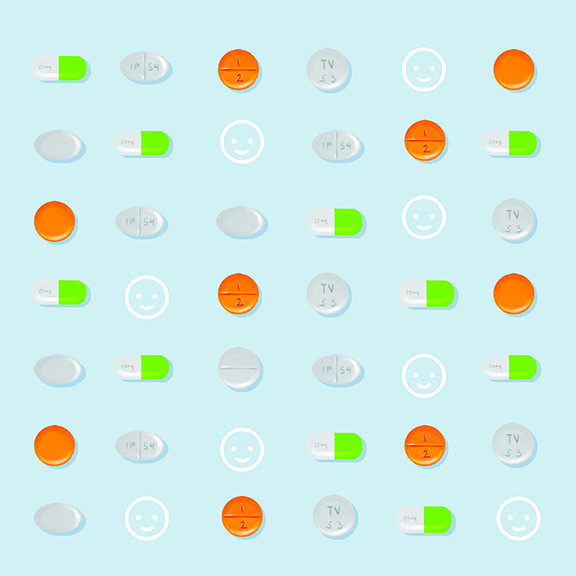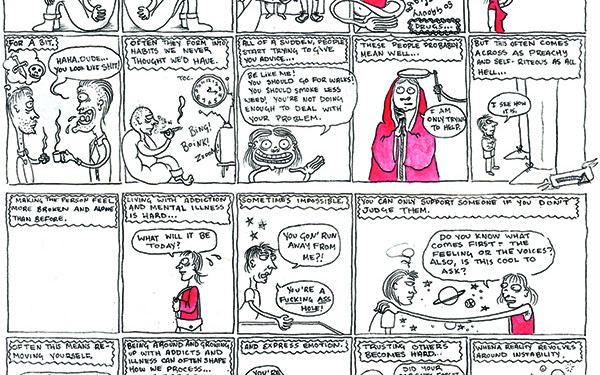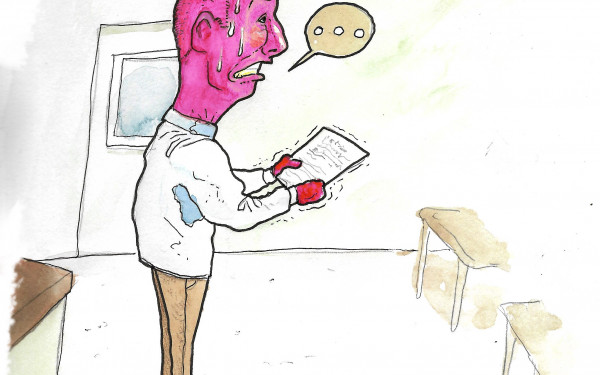Under the influence of anti-anxiety medication
An account of the ups and downs of being treated for anxiety
On a Wednesday in March 2018, I went to the emergency room and a doctor diagnosed me with severe anxiety disorder.
He prescribed me 10 mg daily of the antidepressant citalopram, a selective serotonin reuptake inhibitor or SSRI, and 0.5 mg of clonazepam for panic attacks.
Starting mid-August 2018, things got significantly worse. My anxiety symptoms were more intense than I had ever experienced before. I wasn’t able to sleep at night. I was having constant agonizing stomach cramps. The only relief I found was drinking alcohol, which would decrease my abdominal pain and temporarily alleviate my anxiety. I was on a one-way road to self-destruction.
I desperately needed help and informed my doctor. They tripled the dosage of my prescription for citalopram to 30 mg and added buspirone, which can be taken in combination with citalopram to boost its efficacy. My dosage of clonazepam was increased to one mg. I can’t say this helped, but it changed how I felt. Instead of feeling anxious, I now felt nothing. I felt apathetic and indifferent to life in general. I slept all the time and whenever I was awake, I was just waiting until I could sleep again.
Eventually, I adjusted to my dosage. However, I told my doctor how I was feeling. They recommended we decrease the dosage. For a week to 10 days after the decrease, I was irritable and my emotions changed dramatically. I also felt what I would describe as random jolts of electricity coming up my spinal cord.
It seemed like things were finally going to be okay, and they were for a long time. We finally found the right dosage at 20 mg of citalopram and 10 mg of buspirone daily with one mg of clonazepam for panic attacks. I applied to journalism at Concordia University and was accepted.
This came to an end in the fall semester of 2020. I wasn’t mentally prepared for full-time remote learning.
For certain journalism courses, remote learning did not affect my ability to complete assignments. For others, this was not the case. I routinely met obstacles trying to complete my assignments, such as interview subjects saying “I can’t let you come over because it is illegal.”
How can you blame them? We’re in the midst of a global pandemic in a city in the red zone asking them to allow us into their bubble, potentially contaminating them with a deadly virus for the purposes of a school assignment. This led to me having daily panic attacks and my doctor prescribed one mg of clonazepam daily until the end of the semester.
Ultimately, I think anti-anxiety medication has had a positive influence on my life. Without it, I would be a prisoner to my anxiety. I had little to no control over my emotions and how they would change drastically in a short period of time. I had little to no control over my ruminating thoughts. After being treated, I had more self-control than I had ever had before. When I was younger, I would question why people would take these medications when you could use more natural coping mechanisms such as yoga, meditation and exercise. For some people, that isn’t enough.
This article originally appeared in The Influence/Influenced Issue, published January 13, 2021.





_600_375_90_s_c1.jpg)

_600_375_90_s_c1.jpg)